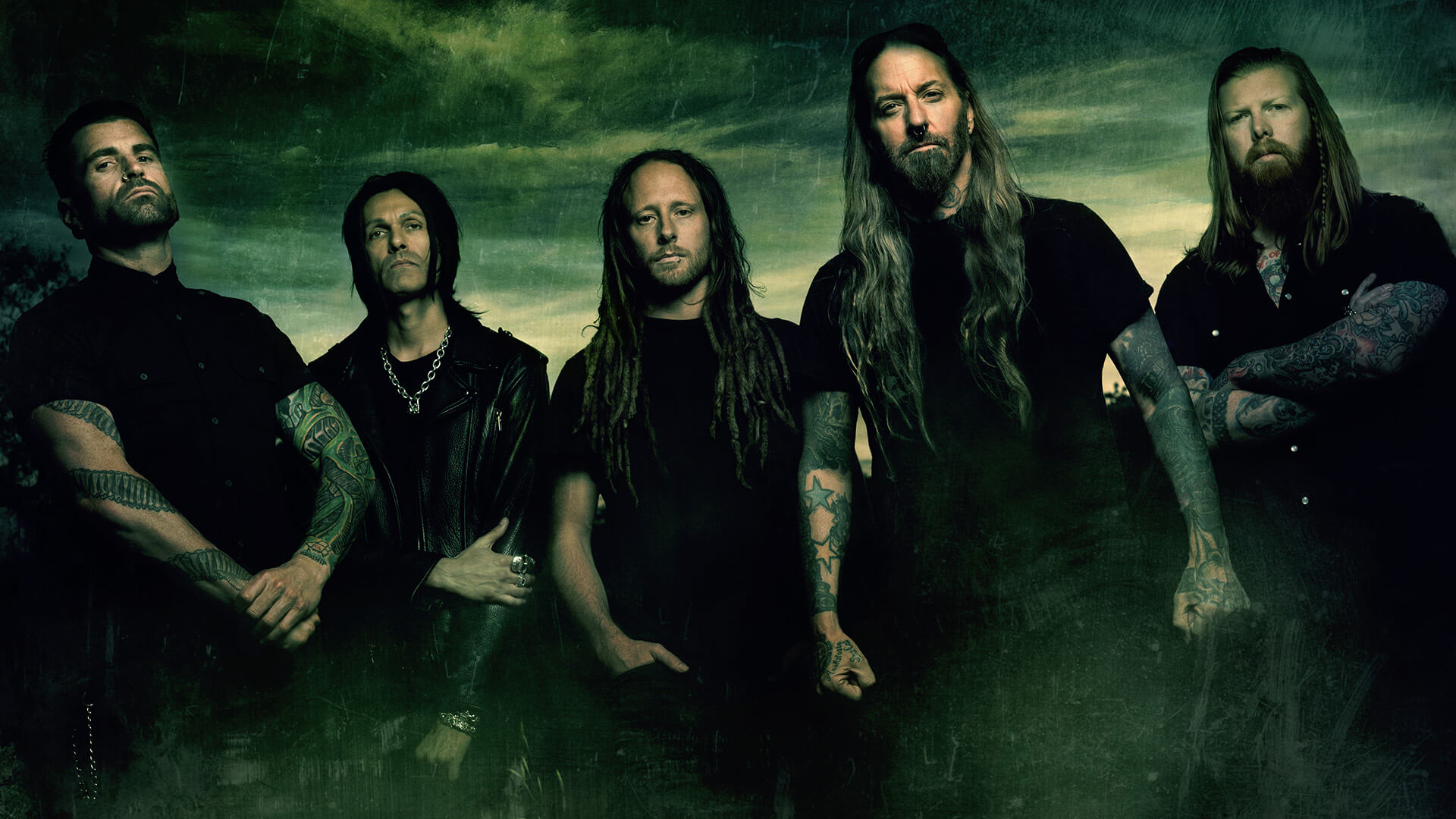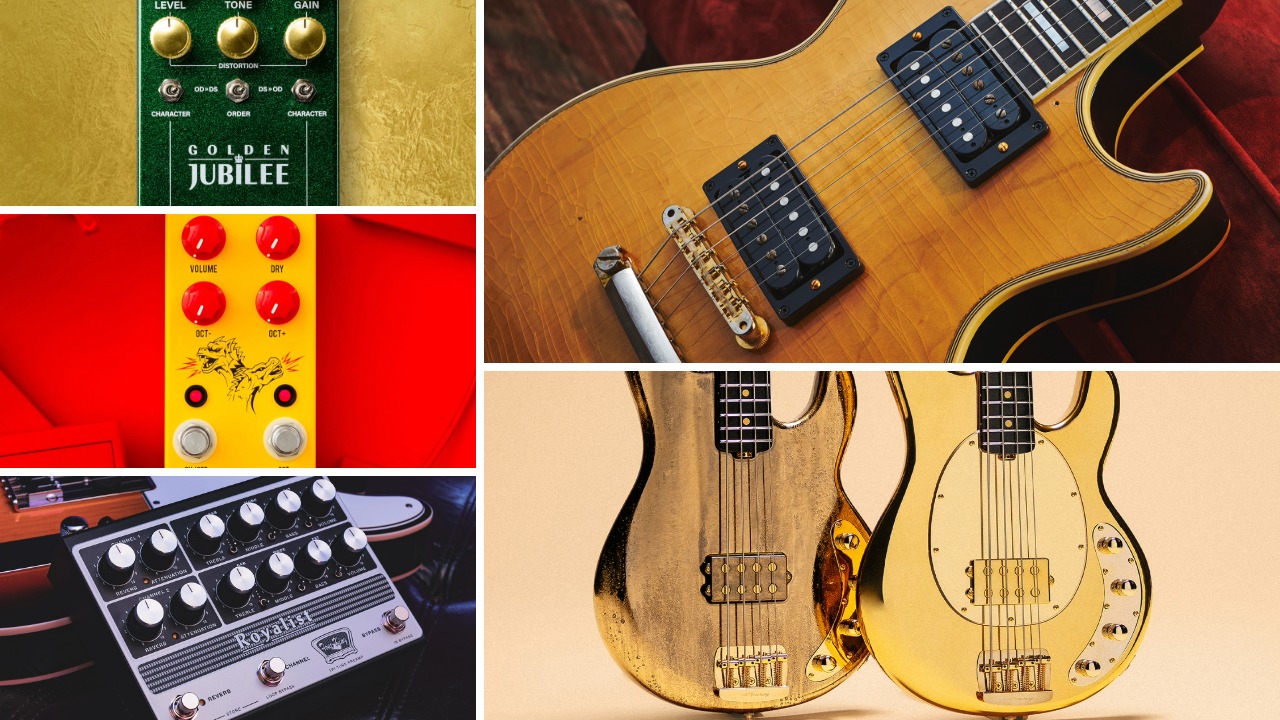DevilDriver: “After spending so much time writing music over the last 20 years of my life, I’ve started to have these little epiphanies here and there”
On what's been described as their "most literal" album, DevilDriver deliver some of their most jaw-droppingly powerful material to date

All the latest guitar news, interviews, lessons, reviews, deals and more, direct to your inbox!
You are now subscribed
Your newsletter sign-up was successful
After shaking things up with an country-flavoured cover album in 2018 – the almost surprisingly fantastic Outlaws ’Til The End: Vol. 1, which we hope receives a follow-up sooner than later – the groove-metal titans in DevilDriver are back and rearing with a crash-hot new compendium of what it is they do best: sick riffs, sour screams and ear-shattering beats. It’s called Dealing With Demons, and it’s an epic double album which spent years in the making, frontman Dez Fafara first declaring his ambitions to scribble up a multi-disc opus right around the time of Devildriver’s inception itself.
With the first half of the record out in the wild (the second due sometime in 2021), Australian Guitar chatted with lead shredder Mike Spreitzer about where such an ambitious concept came from, how they turned it into a reality, and why sometimes it’s worth arguing with the man in charge.
What made you guys want to spread the record out in two parts?
We had a lot of discussions about that – there was actually the idea of releasing four EPs. I was always in favour of doing two separate records and releasing them at two different times. Because y’know, we did 20 songs for this record, and giving the public 20 songs all at once – especially these days, when attention spans are a lot shorter than they used to be – it just wouldn’t have gone as well. I felt, and luckily a lot of other people that had a vote in this felt, that releasing two shorter records and staggering them out would be the best idea. There’s only nine songs on Volume I, there’s going to be eight songs on Volume II, and there are three songs left over that I believe we might be releasing as an EP down the line, or maybe as singles.
So on a conceptual level, was it always going to be a double album, or was it just that you had so many ideas that you couldn’t fit them all on the one disc?
It was going to be a double record from the get-go. We went into it knowing that we were going to need at least 20 songs to record – that decision was made before we even started.
Was it just the ambition of the concept?
Dez has always told me – even since I met him – that one day, he wanted to do a double record. Dez has lots of ideas, though, so I didn’t know how serious he was about it for a long time. I never really put much thought into it. But things in the band are very good right now – the relationships are all strong and our level of happiness is very high, so it felt like a good time to do something like this. Me, Neal and Austin spending the bulk of the time together writing the music before we pass it on to Dez, and the three of us get along so well that it’s almost unbelievable – I’ve known the guys for five, maybe six years now, and we’ve never been in a single fight. We just really enjoy writing music together. So this was a really good time for us to take this project on – and we did it because we wanted to, y’know? It’s kind of a ballsy move, because we’re living in an era where double records are probably considered a little bit obsolete. But we didn’t care, y’know? We were just like, “Let’s do it and see what happens!”
Is there anything that we should expect to be surprised by on this project?
Yeah! We just finished shooting the video for a song on Volume I called “Wishing”, and the song actually has Dez singing clean vocals. Even instrumentally, it’s the most left-field song I think we’ve ever released to the public. And from the few journalists that have heard it, usually one of the first questions I’ll get is regarding that song. But there’s been a lot of positive feedback – I was really happy with the song when I first heard it, and I actually had to sit Dez down and try to convince him not to change the clean vocals, because he was a little nervous about releasing the song like that at first. He told our producers, “Maybe we should go and re-record it,” but I absolutely loved it as it was, so I remember texting him, “Dude, don’t change a thing! Relax. Take our word for it.” And I’m glad he didn’t go back and change anything about it. I think a lot of people are going to like it! It’s a damn good song!
The press release for this album describes it as representing “the onset of a final purging of the demons that have long haunted” Dez and Devildriver’s music. How were you able to translate that emotional intensity and visceral darkness into music using the guitar?
After spending so much time writing music over the last 20 years of my life, I’ve started to have these little epiphanies here and there. I don’t really suffer from writer’s block anymore because I’ve learned how to work my way around it. And I’ve also discovered that, y’know, you’re creating something from nothing when you’re writing a song from scratch. You have your guitar, some cool effects, and whatever inspiration your head absorbs into your consciousness and subconsciousness – and that somehow gets mixed together and thrown out into this brand new recipe that you’ve created.
All the latest guitar news, interviews, lessons, reviews, deals and more, direct to your inbox!
And just the time of day, I think, has such a major influence on that. I’m a big believer in the idea that whenever you decide to sit down and write, that timeframe is going to be completely unique to any other time. Even if you stop for an hour and come back to it, you’re not going to write it exactly the same way you would’ve if you kept writing for that hour. And there are moments on this record where that was true for me – like the song “Keep Away From Me”. I’m not going to get into all the details, but when I wrote that song, I was not in a very good mental space; I had a lot of bullshit going on in my life, and reverting back and listening to that song… Instrumentally, it’ll probably sound different to me than it will to a lot of other people, but it’s one of the darkest songs I think I’ve written for this band. Listening to it now, now that I’ve had time to step away from it, it kind of slams me back into that time and what I was going through when I wrote it. So all these things have an influence on the music, and I do think that can translate into the guitar riffs, even without vocals or lyrics.
What kind of guitars were you swinging around in the studio for this record?
All my parts were done with ESPs, and all of Neal’s [Tiemann] parts were done with Dunable guitars. Y’know, we’re comfortable playing them and we like the way they sound. One thing we did on this record that we’d never done before is have Neal play all the rhythms on one side of the recording and me play all the rhythms on the other side, and then blend them together in the mixing.
What made you want to do that?
Our producer, Steve Evetts, came up with the idea because Neal has a lot more low-end come through in his playing. He and I could be playing through the exact same setup, but if you hand him the guitar, you’ll get a lot more low-end. If you hand me the guitar, I get less low-end, but I’ve got more high-end coming out of my right hand. And so our tones are very unique from one another, and Steve thought it would blend well to have one of us on one side and one on the other.
I think we used close to 15, 20 different amps on this record, just for the rhythms alone. Neal would pick a guitar and we’d go through an overdrive pedal into an amp, into one of two cabinets – we had two Mesa cabinets with vintage 30s on the bottom, and then one had Greenbacks on the top and the other one had Creambacks. And we had those all mic’d up with an identical microphone configuration, so we would be able to plug whatever amp into the Creambacks and check that out, and then decide where to go from there. And then when we would do the other side of the rhythms, we would have a completely different amp, a different overdrive pedal, a different guitar, and sometimes even a different speaker cabinet.

Ellie Robinson is an Australian writer, editor and dog enthusiast with a keen ear for pop-rock and a keen tongue for actual Pop Rocks. Her bylines include music rag staples like NME, BLUNT, Mixdown and, of course, Australian Guitar (where she also serves as Editor-at-Large), but also less expected fare like TV Soap and Snowboarding Australia. Her go-to guitar is a Fender Player Tele, which, controversially, she only picked up after she'd joined the team at Australian Guitar. Before then, Ellie was a keyboardist – thankfully, the AG crew helped her see the light…
